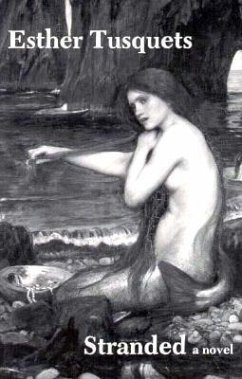A densely written "stream-of-consciousness" novel that explores the idea "that the loss of love is always painful for everyone and surely much more so for women." Spanish writer Tusquets, a committed feminist and student of female sexuality, focuses here - in this third volume of a trilogy (her first US publication) - on heterosexual eroticism. The story itself is relatively conventional, but the treatment is not. Elia, a writer and poet, has joined longtime friends Pablo and Eva for their annual summer holiday at the beach. Beloved husband Jorge is usually there, but this year he has walked out, and Elia is trying to get through this usually happy period with pills, drink, and an anonymous young man she picks up in the bar. Eva, a lawyer and social-justice activist, has also invited deeply troubled adolescent Clara, who is in love with Eva. Meanwhile, Pablo - who feels that Eva doesn't appreciate him, that life is passing him by, and that things are certainly not the same now that Jorge has left Elia - takes up with a young woman he meets on the beach. When Clara, angered by Pablo's betrayal, tells Eva of his infidelity, Eva - previously thought to be strong and self-reliant - crumbles, suddenly aware of her dependency on Pablo. A reconciliation of sorts takes place, and Elia on her way to pick up her son from camp realizes that no one can live through another person: "never in all my life have I been so blank, so free...but I'm alive and I'm running in the race and I'll keep on going alone or accompanied." And, once again, the ultimate solitude of the individual is reaffirmed. Places, emotions, and characters are all vividly evoked, but the "stream-of-consciousness" - claustrophobic and relentless - is far too much for so conventional a theme. (Kirkus Reviews)
Hinweis: Dieser Artikel kann nur an eine deutsche Lieferadresse ausgeliefert werden.
Hinweis: Dieser Artikel kann nur an eine deutsche Lieferadresse ausgeliefert werden.








